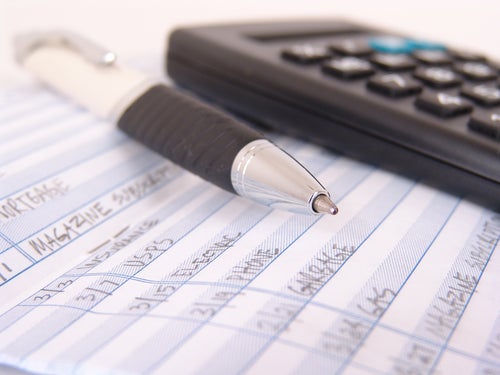While your bank accounts and your credit rating are not necessarily linked, they can influence each other. Today we’ll talk about how the way you use your checking account can trickle over to your credit report.
Opening a Checking Account
If you’ve never had an account with your prospective bank and want to open one up, your bank is going to check you out electronically. Most will use a checking account credit database. If you have an entry in one of these systems, you will probably not be able to get a checking account.
In addition to the check with the checking account credit database, some banks will pull your credit from a traditional credit bureau. This type of review would be considered a hard inquiry on your credit, which can ding your score. Even though the point loss may be minimal, if you’re on the edge between a good credit rating and a poor credit rating, these few points can ultimately cost you money in the form of higher interest rates or even get you turned down for a loan.
Checking/ATM fees
Checking accounts aren’t free for most people. And ATM fees can put a serious dent in your wallet. In fact, in the first quarter of 2015, banks made over $430 million just in ATM fees.
If you are living paycheck-to-paycheck, ATM fees and monthly fees can really harm your budget. While a $15 monthly fee for a checking account may not sound like a lot of money, for someone on a fixed income, this can be a hefty sum, amounting to $180/year. If checking account fees are causing you to not make payments on credit cards, auto loans or even your mortgage, those late payments can cost you not only financially but also in credit score points.
To avoid fees like these, you may want to consider shopping around for banks that don’t charge usurious fees. Credit unions may also be an option, as many don’t have checking fees and some will even reimburse you for out-of-network ATM transaction fees.
Overdrafts
According to the Electronic Fund Transfer Act, in order to get hit with overdraft fees, you must opt into your bank’s program. Opting in will allow you to still withdraw money from an ATM or pay presented checks when your balance is $0 – you will still be responsible for paying back the amount of the overdraft plus the fee.
However, despite the fact that you have opt in to have overdrafts, banks made over $11.1 billion in overdraft fees last year. Not only can overdraft fees seriously impact your day-to-day finances, and potentially cause you to cut back on payments to other financial obligations, but you also could wind up with a collection account if you are unable to repay the amount of the overdraft (plus the fee) within a given amount of time.
Collections can tank your credit score by more than 100 points, depending on your credit before the collection was placed on your report. Paying a collection account will not immediately remove it from your credit report, as collections remain on your credit report for seven years from the original entrance date.
If the collection goes unpaid long enough, you could find yourself in court over the amount. If you ultimately end up with a judgment entered against you, it will wind up on your credit report.
To avoid overdraft fees, keep a close watch on your bank balances. Most banks have systems that will send you alerts should your balance get below a certain level. Also, make sure you are not opted in to your bank’s overdraft system. A quick phone call to customer service can confirm this.
Questions about credit repair?
Chat with an expert: 1-800-255-0263







